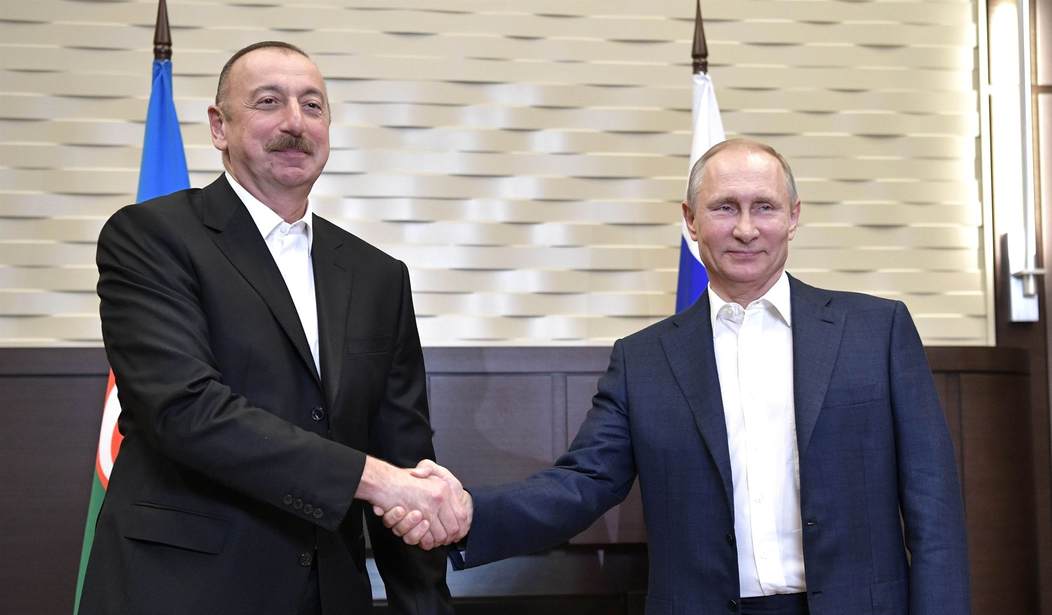This entire “economic warfare” concept doesn’t seem to be working out as well as old-fashioned warfare with tanks and guns. After Russia invaded Ukraine, the world quickly moved to impose massive global sanctions on Moscow, assuming that we would be able to collectively bring them to their knees as the Russian economy collapsed. But according to one group of international economics analysts, “Russia is swimming in cash.” How are they managing this feat? It’s all about the oil and natural gas. Russia took in $97 billion from oil and gas sales by the end of July, with roughly $74 billion of that coming from oil exports. Meanwhile, they have continued to throttle down their natural gas exports to Europe, spurring an energy crisis further and putting pressure on our NATO allies in the region. (Wall Street Journal, subscription required)
Russia pumps almost as much oil into the global market as it did before its invasion of Ukraine. With oil prices up, Moscow is also making more money.
Demand from some of the world’s largest economies has given Russian President Vladimir Putin the upper hand in the energy battle that shadows the war in Ukraine, and has confounded the West’s bid to cripple Russia’s economy with sanctions.
Sales are booming in Russia’s export market, the world’s largest in crude and refined fuels. And new trade arrangements have given Mr. Putin cover to use natural-gas exports as an economic weapon against Ukraine’s European allies. Before the war, Russia supplied Europe with 40% of its gas. It has since throttled flows through the Nord Stream pipeline to Germany and other conduits, driving prices higher and putting pressure on European households and businesses.
Russia’s oil exports aren’t “booming,” strictly speaking, but they really haven’t registered much of a decline since they invaded Ukraine. So far this year the Russians have exported an average of 7.4 million barrels of gasoline, diesel, and crude oil per day. In January they were exporting eight million barrels per day, so they are down slightly, but prices are so high right now that the extra profits make up the difference.
But wait, you may be thinking. Didn’t we all agree to stop buying Russian oil? No, we did not. Many western nations (including the United States) agreed to “cut back” on Russian imports. But as one analyst put it for the linked report, there came “a realization that the world needs oil, and nobody’s brave enough to embargo 7.5 million barrels a day of Russian oil and oil products.”
The comparatively small reductions in exports to western nations were more than made up for by sales to Asian nations who have refused to take sides in the conflict. Also, Russia has gotten creative in finding new financial institutions in Asia that are still willing to deal with them. This has allowed them to expand into additional new markets. And the market for their natural gas is still thriving.
Russian oil has also found a market in Saudi Arabia and the United Arab Emirates, along with Egypt. These are supposedly countries that are aligned with us, but they are buying up Russia’s oil for comparatively cheap prices. They burn some of it themselves, but they finish refining the rest for resale. We’re probably buying Russian oil products from them right now without realizing it.
So is this a sign that economic warfare just isn’t going to work? That’s a complicated question and we’ll need more time to see how deeply the sanctions in non-energy industries are biting the Russians. But this strategy definitely isn’t anywhere near as simple and quick as many people were hoping. As with most questions that arise during this conflict… it’s complicated.








Join the conversation as a VIP Member